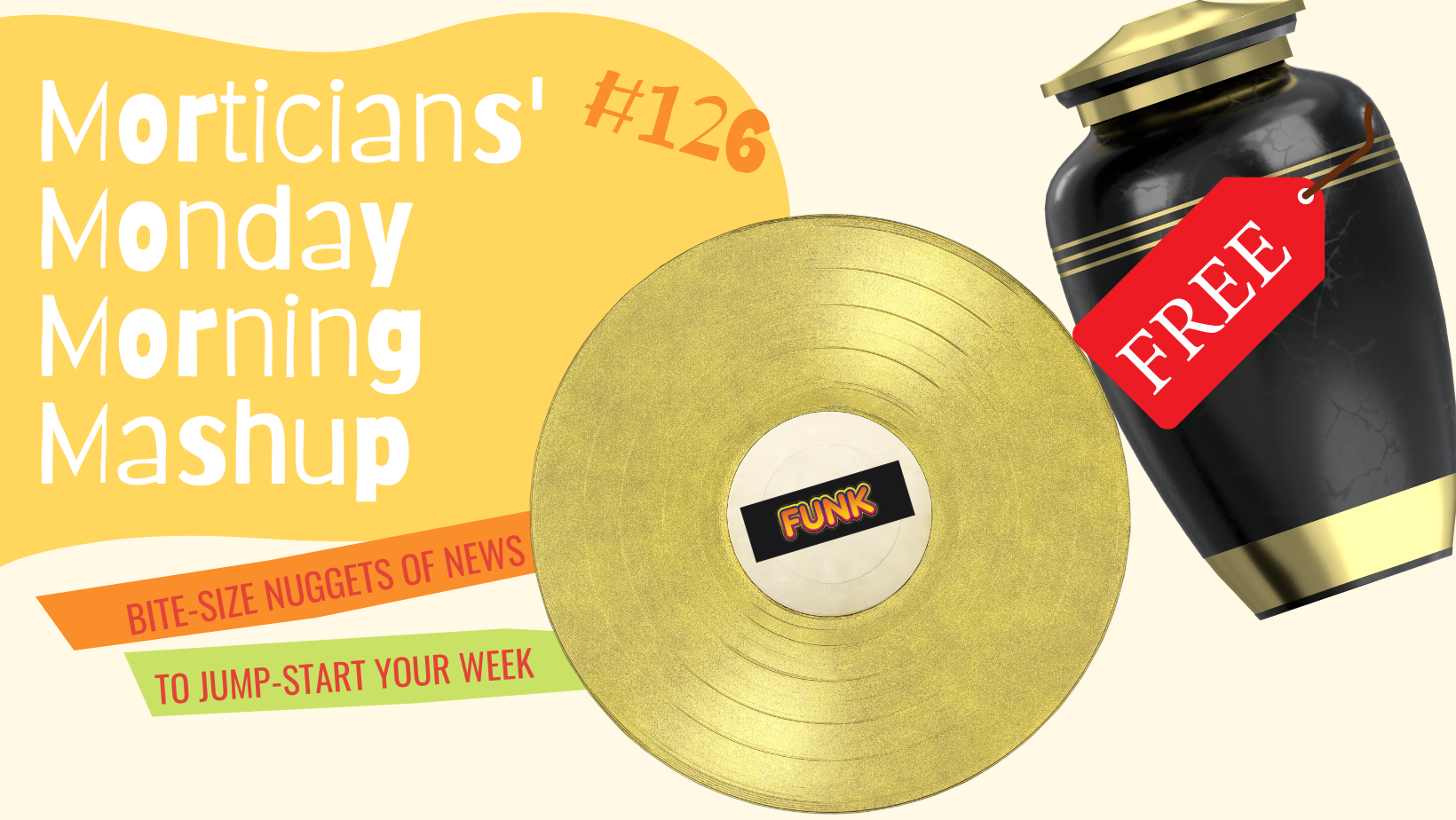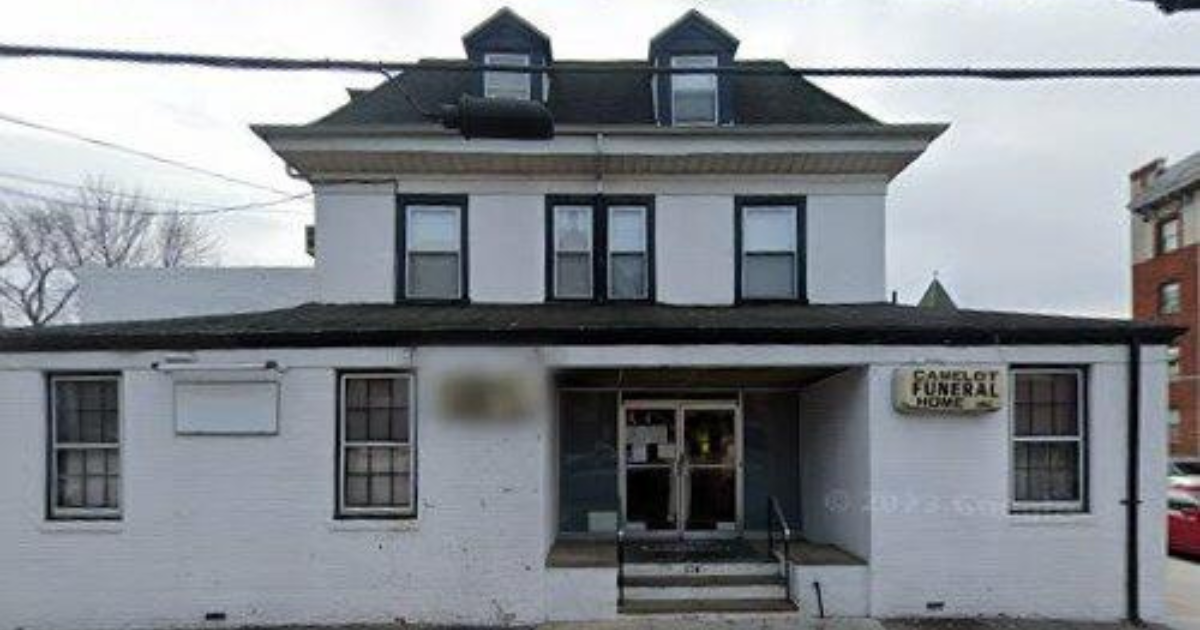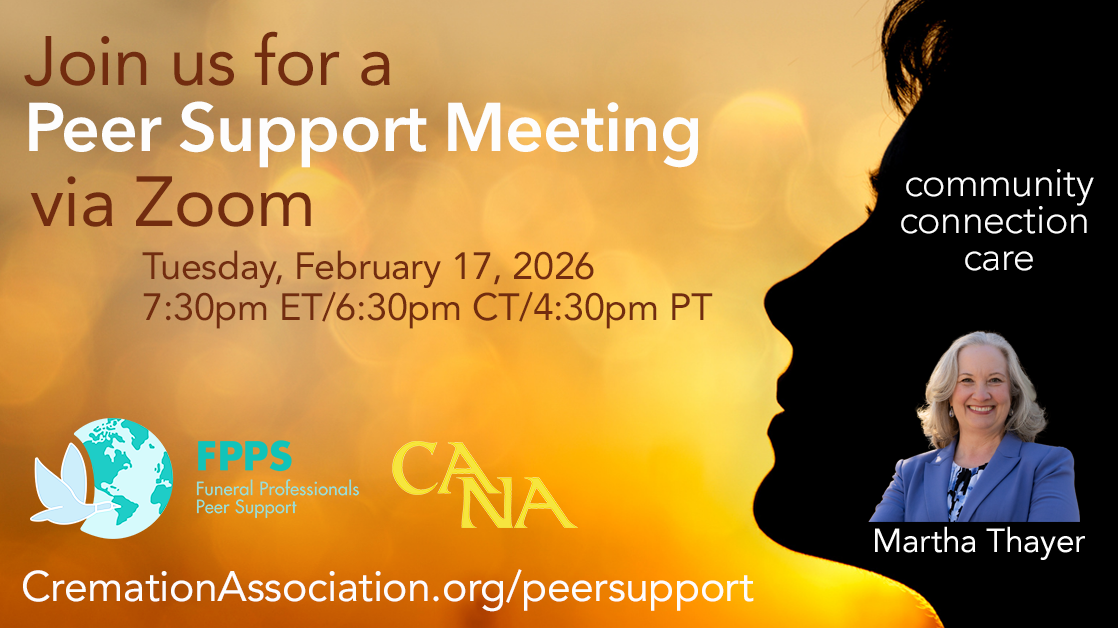Free Urns & Funky Funeral Directors | 4M #126
Welcome to the hundred-and-twenty-sixth edition of Morticians’ Monday Morning Mashup, 4M #126, where we’ll serve up bite-sized, easily-digestible nuggets of the deathcare news you need to crush conversations in the week ahead. Bon appetit!
Wishing Washington luck
If Washington’s Rep. Peter Abbarno and the state’s deathcare professionals get their way, the time mortuaries are required to refrigerate unclaimed human remains will be reduced from the current 90 days to 45 days. If passed, House Bill 1974 would greatly alleviate the growing shortages of cooler space and also require counties to transfer unclaimed bodies of veterans to the Department of Veterans Affairs. Rob Goff, executive director of the Washington State Funeral Directors Association and host of the Member Talks podcast, has commented publicly in support of the bill. In a recent Seattle Times article, Goff explained the potential health hazards of the current 90-day holding period, as well as the indignity of transferring the remains from location to location in search of an available cooler.
Some good from the very bad
Like Colorado in the aftermath of Sunset Mesa and Return to Nature, Illinois and Florida lawmakers are citing recent deathcare scandals as the impetus to strengthen deathcare laws. Last fall, Illinois authorities found that Heinz Funeral Home/Family Care Cremations had returned cremains to the wrong families, including “some without the cremations even taking place.” Two pieces of legislation have been introduced recently, including a bill that would make mishandling remains a Class 4 felony, and the Reestablishing Integrity in Death Care Act, which would establish requirements for chain of custody systems and documentation.
Meanwhile, in Florida, Chief Financial Officer Jimmy Patronis testified in support of a Senate bill that would “give the Department of Financial Services greater emergency authority and oversight over funeral homes and pre-need contracts.” The move follows the recent investigation into the abandoned Marion Graham Mortuary in Jacksonville, where the director is accused of improperly storing bodies in a building without electricity in addition to facing charges of theft and fraud.
Funk gets funky
For whatever reason, the general public still has a hard time imagining funeral directors doing anything but your day job. Here at Connecting Directors, we love to hear stories about how you’re helping to humanize the profession through your hobbies, talents, and extracurricular activities. Take Valenti Funk, a Dallas-based licensed funeral director who has just released his second funk album to great reviews. Utilizing a PowerPoint presentation to tell his life story (to date) and show four videos from the new record, Funk dazzled a Dallas crowd with his new tracks. Not only can this guy put the “fun” in funerals; he can also add some Funk!
Is it really a lack of demand?
Although New York state voted to legalize the practice of natural organic reduction in December 2022, no entities have applied to open NOR facilities. Could it be because the law places the “decision to construct and operate a facility that can perform” NOR on cemetery corporations rather than independent entities or existing funeral homes? An article in the Times Union states that a “staff member for the Albany Rural Cemetery Association said the organization has not heard from anyone interested in the procedure and consequently has not had any conversations related to potentially opening and operating a natural organic reduction facility.” We’re attending Return Home’s TerraCon 2024 this week, where we hope to find out more about New York’s interesting NOR laws and subsequently share any insights with you.
Fighting for the rights
The NFDA and other deathcare and veterans advocacy organizations have submitted comments in response to a proposed rule change by the Department of Veterans Affairs. Under the new rule, the VA would begin to issue urns and commemorative plaques to the families of deceased veterans. However, one provision of the rule says that “once a family member opts to receive the urn or plaque on a deceased veteran’s behalf, that veteran’s remains may not be interred in a national cemetery.” In addition, no other type of marker would be provided for that veteran to be buried in any cemetery. The concern is that widowed spouses of veterans hoping to inter the veterans’ cremains at the time of their own burial in a national cemetery would not realize that accepting a plaque or urn from the VA would rob them of that opportunity. For more information, check out this article on Military.com.




